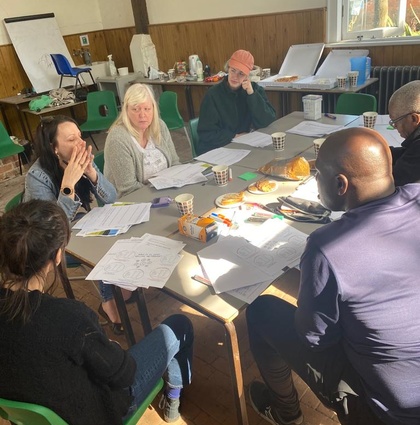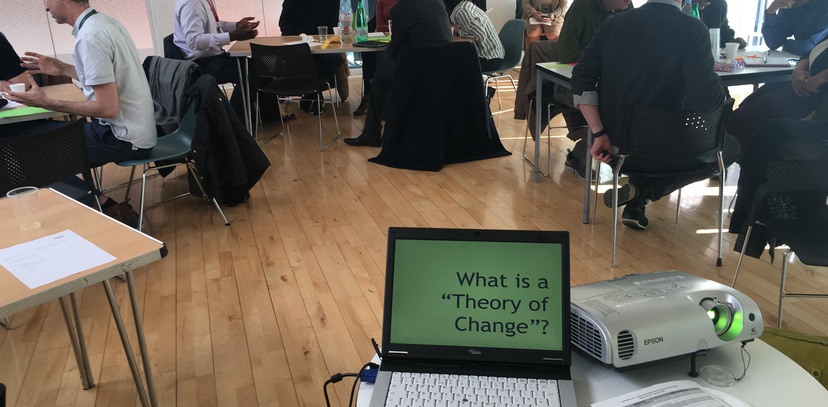

This blog from Olimpia Mosteanu (first published by CaCHE) presents an argument for relational ethics in social research, which focus attention on the everchanging, place-based ecosystems that weave together those who have a stake in producing knowledge about communities. I explore a different way of looking at the protocols and responsibilities that guide social research, and the logics that underpin them.
This is a call to prioritise the multiple contexts (from commissioners, to academia, to local authorities, to our highstreets and homes) in which research unfolds, and the practices of partnership building we need to better understand them.
The COVID-19 crisis and lockdowns made it difficult for many social researchers to access their local research sites in the UK and elsewhere. To adapt research designs and remain flexible to the constraints imposed by the pandemic, researchers within and outside academia started to rethink the role of participatory approaches in their work (some examples are available through the National Centre for Research Methods, the Changing Research Practices project here). On some projects, communities have been given a more active role in research either through peer or citizen research models, while other groups have started to push for increased awareness of the need to bridge between those with ‘lived experience’ and those who contribute ‘professional research expertise’.
During the pandemic, my team and I also relied more on participatory research practices (some examples are available here and here). We challenged ourselves to put co-learning and sharing expertise at the centre of the research process.
These experiences reminded me of one of the oldest lessons from my sociological training: inquiry is always relational – a set of practices nested within others. Involving local people in research ensures that research builds on existing resources (including lived experiences and established trust relationships) and gives support to local people to develop skills, widen their social networks, and gain new insight into their communities.
This type of working together, of partnership-based research, highlights that “coming-to-know” (Kuntz, 2015) or the practice of inquiry is always entangled with other daily activities such as signposting, socialising, or earning an income. Unfortunately, research practitioners often forget or ignore this when research projects unfold too quickly or with too little attention to context or power relationships.
I am not alone in my assessment that research practitioners are starting to rethink methodological responsibility in social research. Many of those who participated in the peer research conference organised by the Young Foundation in March 2022 raised concerns about power relations, accountability, and knowledge ownership in research. Discussions about transformative research (Mertens, 2009), research justice (Jolivette, 2015), and engaged inquiry (Kuntz, 2015) have a long history in sociology and anthropology. These texts, among others, highlight the connection between methodological responsibility and inquiry-as-activism, making a case for how research methodology can assist social change.
A common concern with the current ‘extractive logic’ of research cuts across these conversations. The logic of extraction is understood by many as a model of social research that prioritises data collection and that upholds the neutrality of research methods at the expense of building relationships with the people where the research takes place, as well as a lack of consideration for who owns the knowledge that is co-produced in such studies.
There is no consensus yet on how to move forward, and many researchers are still exploring alternative, community-based or community-aware, models of participatory research. In my view, commissioners, the academia, policymakers, and researchers all have a role to play in supporting a less extractive model of research.
To start with, ‘professional’ researchers need to see community or peer researchers as genuine partners and to acknowledge the work of community researchers as a legitimate research practice. The professionalisation of community researchers might be a way forward but only if it helps rethink the very idea of what counts as ‘expertise’ and ‘knowledge’. The professionalisation of community researchers could be useful if it helps expand our understanding of who is or who can be a researcher. This would require wider, structural changes that cannot be brought about by individual researchers. Without these changes, we risk reproducing the same gatekeeping practices that define more traditional research models.
Alongside the professionalisation of community researchers, I think it is important to build recognition for this work across sectors and see it as an opportunity to rebuild or at least contribute positively to re-establishing the trust and accountability between local communities, academic institutions, and local and central agencies involved in policy development. In that sense, one way of moving forward is to establish partnerships between researchers who come from a wide range of backgrounds and have different research sensibilities (it looks like UK Research and Innovation is already moving in this direction).
Finally, commissioners and funding agencies need to re-evaluate what counts as valid and methodologically responsible practices of inquiry. Together we need to recognise that traditional social research methodologies and protocols inspired by a very limited notion of ‘detached’ objectivity or ‘neutral observer’ have excluded a range of points of view, voices, and methodological approaches. Relational ethics could help guide us towards a more inclusive model of inquiry or “coming-to-know”. This would, however, require all of us to be attuned to contexts, value a range of local voices, and put partnership building at the heart of our practice and research agendas.
This blog was first published by the UK Collaborative Centre for Housing Evidence.
Additional resources
Jolivétte, A. (Ed.). (2015). Research justice: Methodologies for social change. Bristol: Policy Press.
Kuntz, A. M. (2015). The responsible methodologist: Inquiry, truth-telling, and social justice. New York: Routledge.
Mertens, D. M. (2008). Transformative research and evaluation. London: Guilford Press.
Meghji, A. (2021). Decolonizing sociology: An introduction. Cambridge: Polity Press.
Smith, L. T. (2021). Decolonizing methodologies: Research and indigenous peoples. London: Zed Books.
